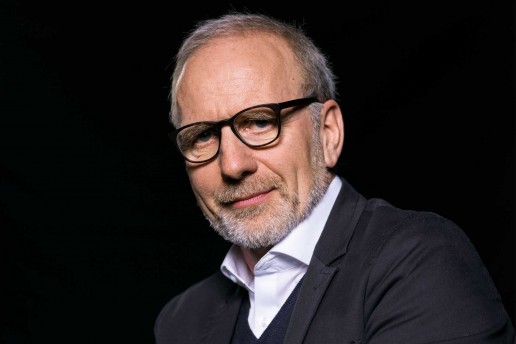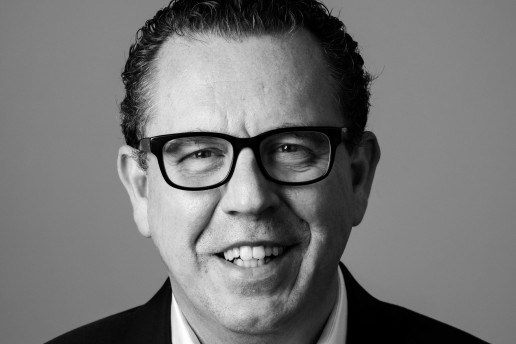Q&A: Charlie MacGregor, The Student Hotel
As we edge closer towards the post-pandemic era, we caught up with Charlie MacGregor, founder of The Student Hotel, to get his thoughts on the past 12 months and where hospitality could be headed in the future.
How has the last year been for The Student Hotel?
It’s been quite a ride, if not a roller coaster. Unlike other hotels, we remained open during the Covid crisis. This was thanks to the flexibility of our hybrid model, which means we can change the allocation of our rooms and re-designate hotel rooms to student accommodation as needed. It has left us in a good financial place as life reverts to the new normal. For TSH, this means we have an occupancy of above 80% and we have cashflow positive hotels, which is a big win for the hybrid model. Another advantage is that, unlike others, we own our buildings and that gives us the flexibility to change our physical spaces to match demand.
Personally, I’ve been inspired by many things this last year. To begin with, the resilience I’ve experienced from the teams at our locations, headquarters and within the projects we’re working on. Even though it’s been hard to work through lockdowns, we’ve done everything we can to keep our guests happy and safe, and that’s why we’ve continued to get great reviews throughout. We are, needless to say, missing all our other clients, but the hotels are buzzing with a strong community – all complying with Covid rules, of course.
We also see that students remain interested in studying abroad and are still looking for that special student experience. At TSH we are doing our utmost to give them that by providing them with the opportunity to connect with the city and fellow students. Since our usual roster of events aren’t available due to Covid, we have been providing virtual opportunities such as meditation and yoga, film nights and learning programmes.
Can you tell us more about some of your latest openings?
We opened three projects last year: Delft, Vienna and Bologna. TSH Delft is located conveniently next to the central train station and was almost fully booked from the start – it’s our most sustainable project to date. All public spaces, workspaces and the in-house restaurant are designed with circular principles in mind. For instance, the large plastic panels on the walls of the main lobby are made from used refrigerators and single-use cutlery. The furniture we’ve included is fully circular too; it’s designed with individual elements that are easily removable when they’re ready to re-use or recycle, while the chairs are crafted from old denim and there are reclaimed furniture from other TSH locations that further contribute to our sustainable objectives.
Vienna is our biggest project thus far and features more than 810 guestrooms, together with a 1,500m2 co-working space. We opened the doors in March last year, just as the city was going into its first lockdown. Since then, we’ve filled the hotel with students and the co-working space is full of start-ups and other businesses. Despite it being a huge location, the property still manages to feel cosy and community-driven and includes a theatre in the lobby’s centre. The way all the spaces blend together makes it truly unique.
Then last October, we opened TSH Bologna for our student guests in the Emilia-Romagna region. The property has 361 rooms in total, out of which 224 are student rooms and 106 are hotel rooms. As with all of our locations, hotel guests will typically experience the full amenities of a four-star hotel. We also have 31 studios for young professionals who need to stay for a longer period of time – from 14 days up to a year.
And what’s on the horizon?
We’re not wasting this crisis. We have really been looking at what’s working and what’s not. We’ve also seen that the market is moving towards increased use of blended spaces like what we’ve been doing all along. Having changed the game in the residential and hospitality industries with our unique hybrid concept, we want to continue with the model going forward. We have a few nice things up our sleeve, which we’ll start to roll out towards the end of this year and the beginning of 2022 – coronavirus permitting, of course.
We also continue to expand. We’ve just closed the deal on our fifth hotel in Italy with the acquisition of a great property in Rome, due to be opened by the end of 2023. Other new hotels in our pipeline opening in the coming years are Madrid, San Sebastian, Barcelona Provencal, Paris La Villette, Toulouse, Lisbon Carcavelos, Porto, Turin and a further Florence location. This will add circa. 6,000 additional rooms to our portfolio.
How has Covid-19 changed the hotel landscape?
We feel, and it’s more a feeling than hard data points, that the guest has changed more than the hotel landscape. We think they will want to come back and connect with people but will be looking for hotels that add value to their journey. Who understand and deliver on that mindset. We think there will be a big move towards spaces that are active and places where it’s just fun to be. The community vibe and energy is going to be something that people really want to experience while they’re travelling. We incorporate this connection to our neighbourhood locals, who can use our lobbies as meeting hubs or simply to hang out.
Where do you see hotel design headed in the future?
I feel we will see more blending of spaces. Co-working and meeting and event space will be coming to hotels with more long-term guests incorporated into the mix. I feel hotels need to open the doors and make the lobbies fun places to be and this needs to be led by the designers. I’m excited about this new generation of travellers demanding a change in space. Also, we see a movement towards sustainability, which is largely being led by institutional investors and this will continue to have an impact on hotel design as well.
What do you think are the biggest challenges the industry will face?
I feel the older hotels that still cater to the average ‘corporate executive’ will struggle. There is a new generation of business traveller which has been raised with the co-working/living concept and come to expect a more connected experience while on the move. I wonder if the bigger companies will be able to adapt and add services like co-working to their properties. It’s going to be hard when you don’t own the buildings, but let’s see. It will be interesting in the next few years to see how this crisis changes the industry.




